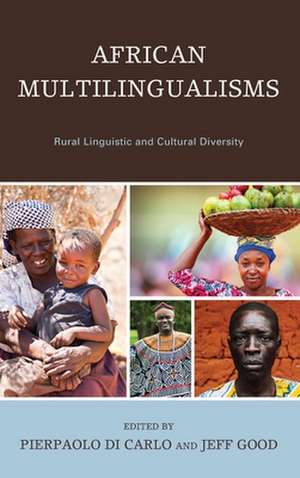African Multilingualisms
en Limba Engleză Hardback – 16 ian 2020
Preț: 679.11 lei
Preț vechi: 930.28 lei
-27% Nou
Puncte Express: 1019
Preț estimativ în valută:
129.94€ • 136.04$ • 107.52£
129.94€ • 136.04$ • 107.52£
Carte tipărită la comandă
Livrare economică 05-19 aprilie
Preluare comenzi: 021 569.72.76
Specificații
ISBN-13: 9781498588959
ISBN-10: 1498588956
Pagini: 318
Dimensiuni: 152 x 229 x 25 mm
Greutate: 0.59 kg
Editura: Rowman & Littlefield
ISBN-10: 1498588956
Pagini: 318
Dimensiuni: 152 x 229 x 25 mm
Greutate: 0.59 kg
Editura: Rowman & Littlefield
Notă biografică
Pierpaolo Di Carlo is postdoctoral researcher in the department of linguistics at the State University of New York, Buffalo.
Jeff Good is professor in the department of linguistics at the State University of New York, Buffalo.
Descriere
African Multilingualisms is the first book dedicated to presenting case studies of small-scale multilingualism in rural Africa. Contributors present extensive new data on sociolinguistic patterns found in these contexts and consider new, more ethnographically sensitive methods for exploring multilingualism of this kind.
